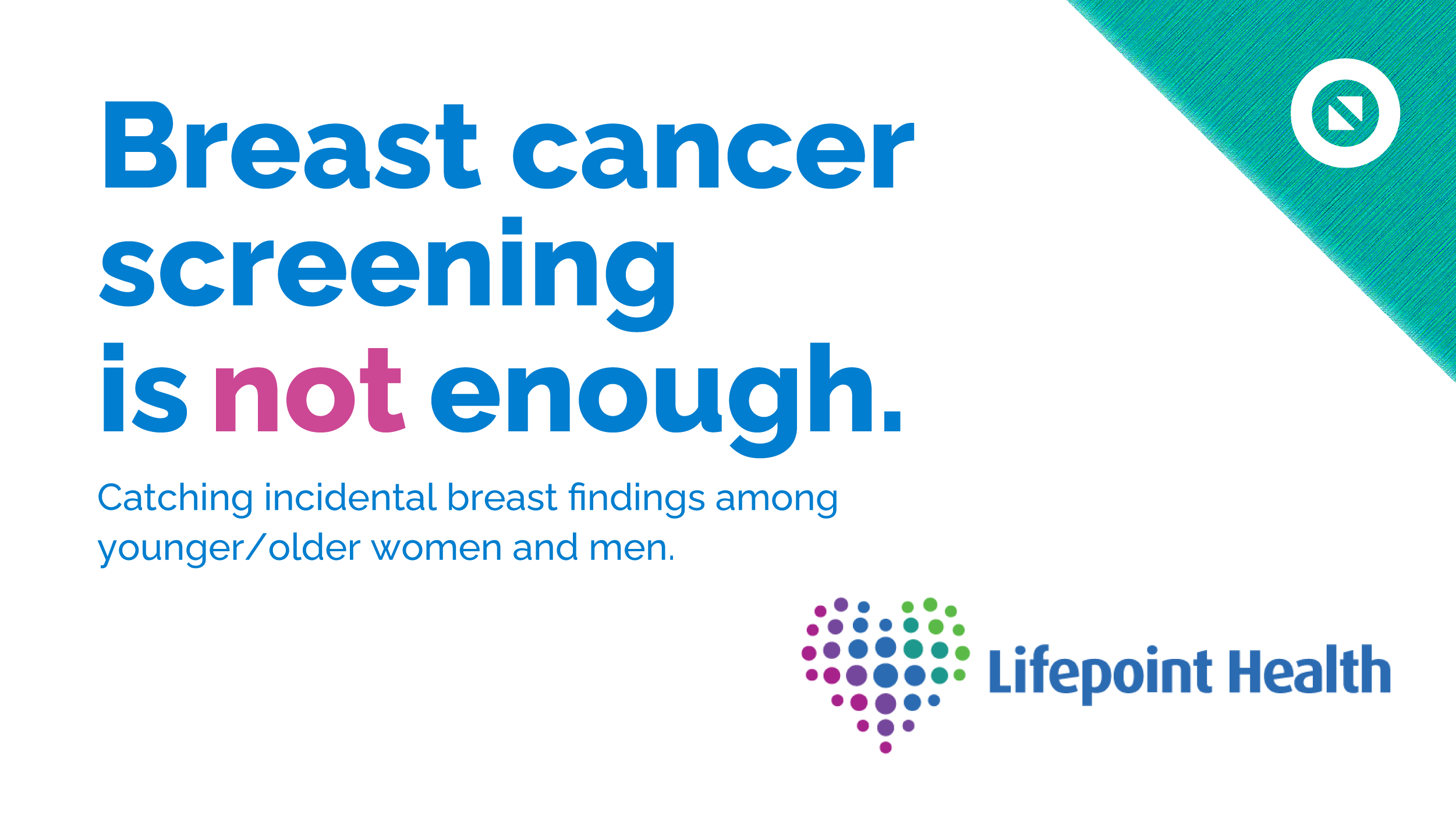

In a world where early detection can save lives, one often-overlooked source of information can play a pivotal role: incidental findings. Lifepoint Health, in collaboration with Eon, ran a pilot study to understand the frequency and impact of incidentally identified breast lesions – findings from radiology exams not specifically intended for breast cancer screening, but which reveal important data. The results underscore the value of tracking these incidental findings, especially for individuals who might otherwise fall outside routine screening protocols.
Uncovering Signs of Breast Cancer
Breast cancer remains the most common cancer among women, and early detection is crucial for improving outcomes. However, typical screening programs primarily focus on women over 40, which can leave certain populations – such as younger women and men – at risk of delayed detection. In Lifepoint’s study, 5.6 million radiology reports from 93 facilities were run through Eon’s computational linguistics model. 506,000 records had the breast mentioned, and 32,000 had positive measurements of breast lesions (most of which were screening or diagnostic mammograms, ultrasounds, or MRIs). Of these 32,000 positive measurements, 5.2% (1,685) were found incidentally - outside of for-cause breast exams.
Notably, 44.7% of the incidental breast findings were in patients who did not meet standard breast cancer screening criteria due to age or gender, with 8% being found in men. These are patients who may have never been identified as being at risk without a robust incidental findings program in place.
A New Paradigm for Early Detection
Programs like these surface patients before symptoms are present. Therefore, evaluating all exams for abnormalities is essential, regardless of the imaging modality or exam intent. Leveraging AI to accelerate the identification of these abnormalities and streamline patient follow-up can mean the difference between catching cancer early or too late.
Thankfully, Lifepoint had Eon’s intelligent solution in place and was able to guide patients through the appropriate care pathways. Additionally, Lifepoint has already begun implementing a system-wide initiative to track and manage all incidentally identified breast lesions (among other clinical cohorts), ensuring that patients receive timely follow-up, even when findings fall outside traditional screening parameters. This study demonstrates that comprehensive tracking of incidental findings should be more than an add-on to routine screenings – it’s a transformative step toward more inclusive, early cancer detection for everyone.
To view the research poster that was recently presented at AONN in full screen, click the image below.